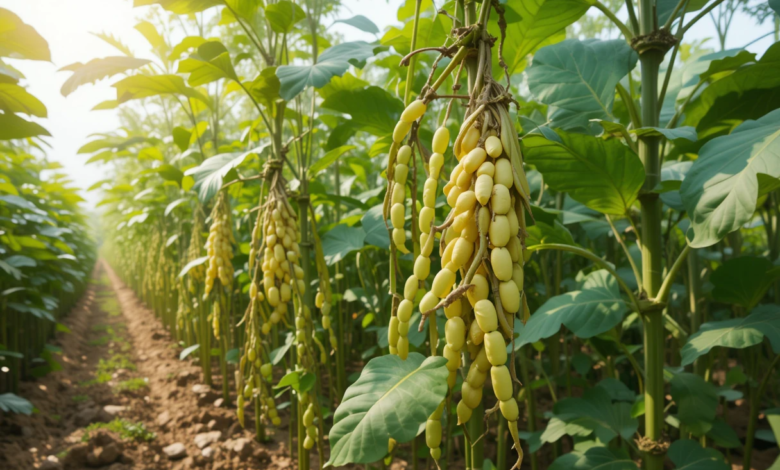You Know About Metanol Feijo.

Feijão, commonly referred to as beans, is a staple food in many cultures around the world, especially in Latin American countries like Brazil. It serves as a crucial source of protein, fiber, and other essential nutrients. As the global population grows, the demand for efficient and sustainable agricultural practices increases. Among various experimental techniques in agriculture, methanol has emerged as an intriguing substance being tested for its potential benefits in crop cultivation, including feijão. You know about theglobespot. You know about metanol feijo.
What is Methanol and Why Use It in Agriculture?
Methanol is a simple alcohol compound with the formula CH₃OH. It is widely used in industrial applications, such as fuel, solvents, and the production of chemicals. Recently, methanol has gained attention in agriculture for its role as a carbon source in promoting plant growth. You know about metanol feijo.
Plants, through photosynthesis, convert carbon dioxide and sunlight into sugars, which are essential for growth. Methanol is believed to enhance this process by acting as an additional carbon source, especially under conditions where natural photosynthesis might be limited, such as during periods of drought or low sunlight.
Methanol and Feijão: Exploring the Connection
Studies have shown that applying methanol to certain crops, including feijão, can have positive effects on growth and yield. Here’s how methanol impacts feijão cultivation:
- Enhanced Photosynthesis Efficiency
Methanol supplementation can increase the availability of carbon in the plant, boosting the photosynthetic rate. This leads to higher energy production, which the plant can use to develop leaves, stems, and beans. You know about metanol feijo. - Drought Resistance
Feijão is a crop sensitive to water scarcity, which can severely impact its yield. Methanol application has been observed to improve drought resistance by reducing water loss through transpiration. This is particularly valuable in arid regions or during unpredictable weather conditions. - Faster Growth Cycles
Methanol-treated plants often exhibit accelerated growth, allowing farmers to harvest their crops sooner. This can be beneficial in regions with shorter growing seasons. - Increased Yield
The ultimate goal of any agricultural innovation is to increase yield. Methanol, when used in optimal concentrations, has demonstrated potential in boosting the number and quality of beans produced.
Challenges and Risks of Using Methanol
While the benefits of methanol in agriculture are promising, there are challenges and risks associated with its use:
- Toxicity Concerns: Methanol is toxic to humans and animals if ingested or improperly handled. Proper application techniques and protective measures are essential to ensure safety.
- Environmental Impact: Excessive or inappropriate use of methanol can harm soil microorganisms and lead to environmental pollution. Farmers must follow guidelines to avoid negative impacts.
- Cost and Accessibility: For small-scale farmers, the cost of methanol and the lack of access to resources for proper application may pose barriers to adoption.
Future of Methanol in Feijão Cultivation
The use of methanol in agriculture is still an experimental practice, requiring further research and development. Scientists are exploring the optimal concentrations, application methods, and long-term effects on soil health and crop productivity. Governments and agricultural organizations must work together to provide education and resources to farmers interested in adopting this technology.
If proven effective and sustainable, methanol could revolutionize feijão cultivation by increasing yields and improving resilience to environmental stressors. However, its use must be part of a broader strategy that includes sustainable farming practices, soil health management, and resource conservation.
Conclusion
Methanol presents an exciting opportunity for enhancing feijão cultivation and meeting the growing demand for this vital crop. By understanding its benefits, limitations, and potential risks, farmers can make informed decisions about incorporating this innovation into their practices. As agricultural science continues to evolve, methanol could become a key tool in achieving global food security while maintaining environmental sustainability.